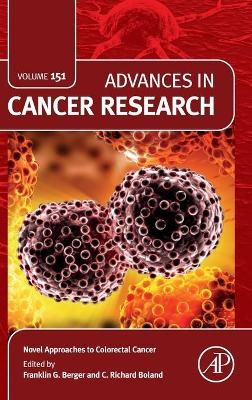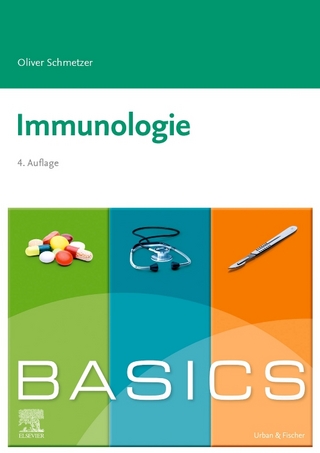
Novel Approaches to Colorectal Cancer
Academic Press Inc (Verlag)
978-0-12-824078-6 (ISBN)
Each of these topics provides novel insights and concepts on various aspects of the nature of colorectal cancer, offering new opportunities for the management of a major source of cancer incidence and mortality.
Dr. Berger is currently Director of Research & Outreach within the Colorectal Cancer Prevention Network at the University of South Carolina in Columbia, SC. He obtained a BA in Biology from the State University of NY at Buffalo in 1969, and a PhD in Biochemistry from Purdue University in 1974. In 1976. He began his career in cancer research at Roswell Park Cancer Institute in Buffalo, NY, where he was located until 1985 when he moved to the University of South Carolina. There, he was Professor in the Department of Biological Sciences until 2018, during which time he served as Department Chair (1996-2002) and was founding Director of the Center for Colon Cancer Research (2002-2018). For nearly 40 years, he ran a research laboratory focused on a variety of topics in mammalian molecular genetics, including colorectal cancer therapy and prevention. His efforts were generously supported by grants from the NIH, and resulted in over 130 articles in peer-reviewed scientific journals. Much of his research in colorectal cancer involved molecular mechanisms of resistance to chemotherapeutic agents. Most recently, Dr. Berger has carried out investigations involving the efficacy of colorectal cancer screening in the community setting, and has been actively engaged in community outreach efforts directed at increasing colorectal cancer awareness and screening, particularly within uninsured and medically underserved populations throughout the State of South Carolina. With the support of grants from foundations, as well as federal and state agencies, he has led the design and implementation of education and evidence-based screening programs across the State. He recently guest-edited a special focus issue of the journal COLORECTAL CANCER (Future Science Group, publisher) dedicated to early-onset colorectal cancer. Numerous graduate students and postdoctoral fellow trained in Dr. Berger’s laboratory, and went on to academic and/or corporate careers in scientific research. Among Dr. Berger’s awards for his efforts in the laboratory and the community are the SC Governor’s Award in Science (2005), the Distinguished Service Award from the SC Gastroenterology Association (2009), election as a Fellow of the American Association for the Advancement of Science (2010), the Laurel Award in Cancer Prevention from the Prevent Cancer Foundation (2012), and a Commendation (Senate Bill S.1260) from the South Carolina General Assembly (2018). Dr. Boland is a gastroenterologist and Professor of Medicine at the University of California San Diego School of Medicine. He is from in upstate New York, USA, received a BA from The University of Notre Dame and an MD from Yale Medical School. He has a career-long research interest in colon cancer, specifically focusing on the genetic causes of colon cancer and familial cancer syndromes. Dr. Boland started studying familial colorectal cancer as a medical student, where he proposed a novel familial form of the disease in his MD thesis. His initial research was with Young S. Kim, MD, at UCSF, studying glycoprotein biochemistry in colorectal cancer. In 1990, at the U of Michigan, he turned his focus to the molecular genetics of colorectal cancer in a sabbatical in the HHMI with the geneticist Andrew Feinberg, MD, and resumed work on the hereditary form of colorectal cancer, which he had named “Lynch Syndrome in 1984. He was among the first gastroenterologists to explore microsatellite instability (MSI) in cancer, and his laboratory developed the first in vitro models to study the basic biology of MSI and Lynch Syndrome. In recent years, he has contributed to our understanding of the genetic and epigenetic basis of colorectal cancer. Dr. Boland has been an active clinician, teacher, and mentor. Two of his former trainees are currently Department Chairs at Michigan and Stanford, and five have held endowed chairs. He has been funded continuously by NIH since 1979, has served on multiple NIH (and other) Study Sections and was the chair of the Clinical Integrative Molecular Gastroenterology Study Section from 2014 to 2016, and was on the Multisociety Task for on Colorectal Cancer from 2012-18. He has published over 400 papers, has an H-Index of 92, and has written authoritative chapters for several textbooks of Internal Medicine, Gastroenterology and Genetics. He was elected into the Association of American Physicians in 2001. He was honored by the Collaborative Group of the Americas on Inherited Gastrointestinal Cancer (CGA-IGC) with their Lifetime Achievement Award in 2015. He was president of the American Gastroenterological Association (AGA) from 2011-2012, and was given the AGA Oncology Section Distinguished Mentor Award in 2011, the AGA Beaumont Prize for his research in 2015, and the AGA Friedenwald Medal in 2016. The University of Michigan has established an endowed Chair in his name, currently held by John Carethers, MD.
1. Early age onset colorectal cancer
Swati G. Patel, Caitlin C. Murphy, Christopher H. Lieu, and Heather Hampel
2. Treatment-induced evolutionary dynamics in nonmetastatic locally advanced rectal adenocarcinoma
Seth I. Felder, Jason B. Fleming, and Robert A. Gatenby
2. Early colorectal cancer detection—Current and evolving challenges in evidence, guidelines, policy, and practices
Robert A. Smith, Stacey Fedewa, and Rebecca Siegel
4. Personalized nutrition for colorectal cancer
Kai Wang and Mingyang Song
5. Immunotherapy in colorectal cancer
Parul Agarwal, Dung T. Le, and Patrick M. Boland
6. Racial and ethnic disparities in colorectal cancer incidence and mortality
John M. Carethers
7. Genomic and epigenomic biomarkers in colorectal cancer: From diagnosis to therapy
Juan Ruiz-Bañobre and Ajay Goel
8. Field carcinogenesis for risk stratification of colorectal cancer
Dionne Rebello, Elliott Rebello, Matthew Custodio, Xixi Xu, Sanil Gandhi, and Hemant K. Roy
9. Modeling colorectal cancers using multidimensional organoids
Ibrahim M. Sayed, Amer Ali Abd El-Hafeez, Priti P. Maity, Soumita Das, and Pradipta Ghosh
10. Unraveling the genomic landscape of colorectal cancer through mutational signatures
Marcos Díaz-Gay and Ludmil B. Alexandrov
11. Epigenetic alterations in the gastrointestinal tract: Current and emerging use for biomarkers of cancer
William M. Grady
| Erscheinungsdatum | 25.06.2021 |
|---|---|
| Reihe/Serie | Advances in Cancer Research |
| Verlagsort | San Diego |
| Sprache | englisch |
| Maße | 152 x 229 mm |
| Gewicht | 910 g |
| Themenwelt | Studium ► Querschnittsbereiche ► Infektiologie / Immunologie |
| Naturwissenschaften ► Biologie ► Genetik / Molekularbiologie | |
| Naturwissenschaften ► Biologie ► Mikrobiologie / Immunologie | |
| Naturwissenschaften ► Biologie ► Zellbiologie | |
| ISBN-10 | 0-12-824078-4 / 0128240784 |
| ISBN-13 | 978-0-12-824078-6 / 9780128240786 |
| Zustand | Neuware |
| Haben Sie eine Frage zum Produkt? |
aus dem Bereich


